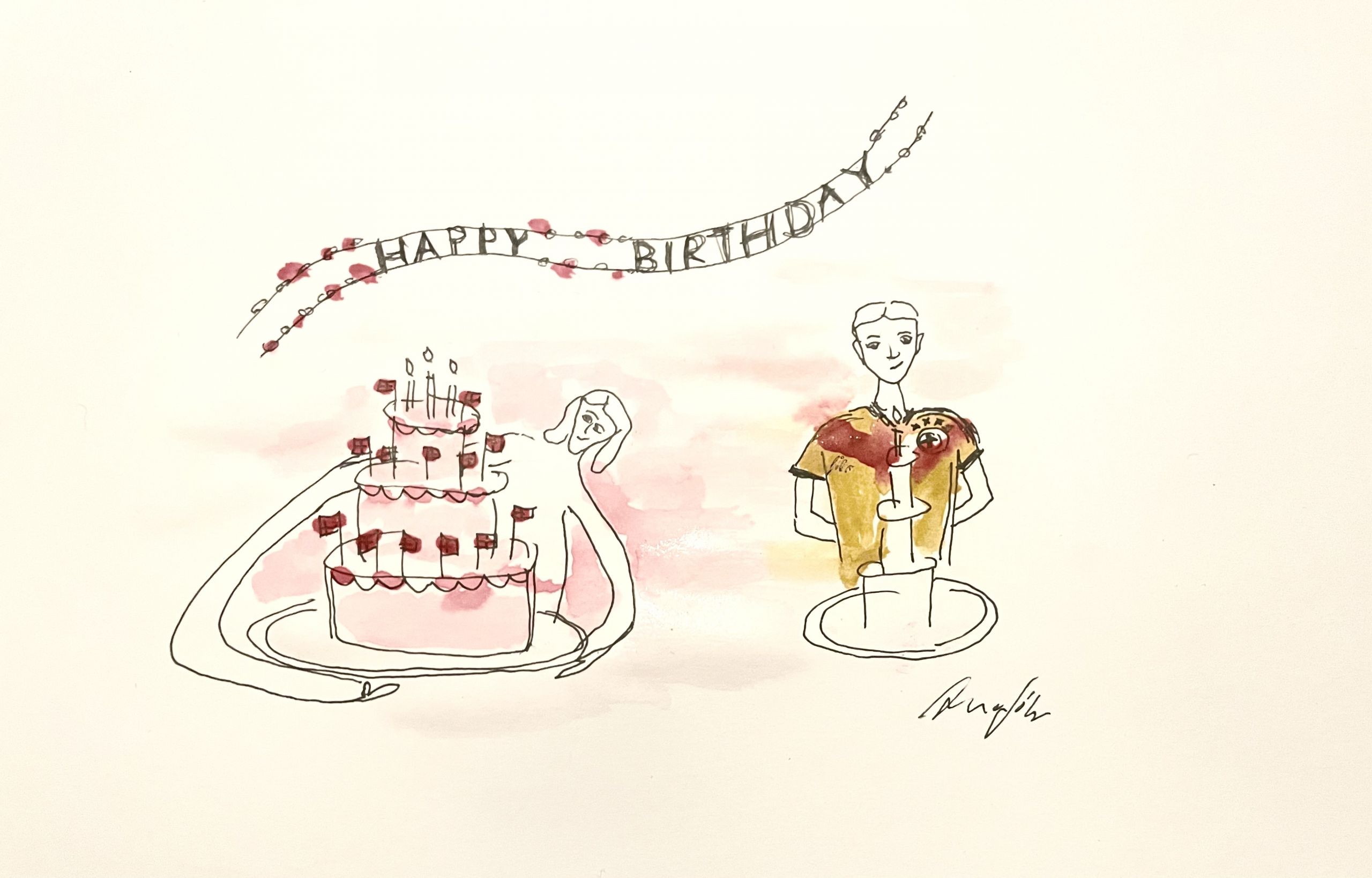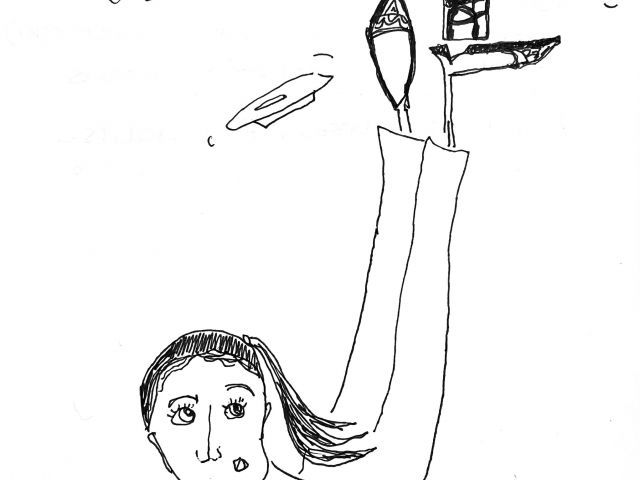The thought of being woken up by your family smiling, singing and waving the national flag sounds like a terrifying fever nightmare…

(Illustration by Anna Loehr)
Waking up to the sound of your family smiling, singing and waving the national flag would be a terrifying prospect for Germans. But for Danes, it is the description of an ideal birthday morning, and the flags are a sign of celebration.
The fact that a new citizen has been brought to this tiny country is paraded with flags on the birthday cake, flags in the hallway, flags in your hair. A glimmer of red and white surrounds you on days of celebration, and on a day of national festivity, even the buses wear red and white antlers.
In Germany, there would never be a national flag flown for a birthday celebration. At least not without eyebrows being raised and silent whispers being shared: Did she vote AFD? What is her grandfather called? Is she racist? In my country, flags belong to public buildings, and abroad, we only show them at embassies.
Black, red, gold enters private life for some if it includes football, where we can express our national pride in the same way as Denmark does. Screaming the national anthem at the top of your lungs belongs to world championships. 1954, 1974, 2006, and 2014, the years that Germany won, function as code to unlock some national pride in us. When we recognize another German by their tricot on a holiday abroad, we acknowledge their stylish choice with a smile.
Here in Copenhagen, hearing about how my fellow classmates from BLC admire my home country always offsets me a bit. However, it also leaves me with an itch to reevaluate how I think about Germany: It shows me that I can be proud to be from Germany. Norwegians at CBS express their connection through forming a strong network that can feel like a secret society, yet the Germans are more hesitant about initiating something like that.
The fact that a new citizen has been brought to this tiny country is paraded with flags on the birthday cake, flags in the hallway, flags in your hair
Germans are shy about expressing positivity about their country, as we struggle with allowing ourselves to identify with our nation, and its history.
For my generation, the world war belongs to the past: German history is a part of us, but we are not a part of German history. However, as our formal federal president Joachim Gauck says, there is no Germany without Auschwitz. This reminds us that German history should never repeat itself, and should never be forgotten. In history class, the world wars and their aftermath are repeated again and again and again, so the awareness of the crimes committed is high. But does that mean we should not allow ourselves to be proud of where we are from?
In my country, flags belong to public buildings
In a world where borders are disappearing, the sentiment of national identity is developing unevenly. At the same time, it is becoming more fluid – but also more rigid. On one side, we can see a wish for refocusing on nation states and breaking away from globalization. Perhaps that is due to Brexit or Trump´s protectionism. On the other side, for us European students, it seems so natural to travel back and forth, to exchange cultures and build our own multinational identities. I, for instance, would rather wave a European flag than a German one.
If someone asks where I am from, I tend to answer Munich, and not Germany. Instead of sharing a national pride, there is a trend towards a sort of local patriotism: We are more proud of the city we come from. For me, that is Munich with the Oktoberfest, the Alps, Chiemsee, Brezn and Kaiserschmarn. But the rest of Germany maybe does not like Bavaria that much… but that’s a whole other story.


































































































































Comments